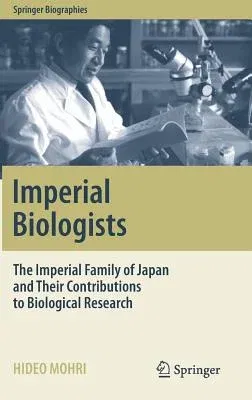Hideo Mohri
(Author)Imperial Biologists: The Imperial Family of Japan and Their Contributions to Biological Research (2019)Hardcover - 2019, 2 April 2019

Qty
1
Turbo
Ships in 2 - 3 days
In Stock
Free Delivery
Cash on Delivery
15 Days
Free Returns
Secure Checkout

Part of Series
Springer Biographies
Print Length
204 pages
Language
English
Publisher
Springer
Date Published
2 Apr 2019
ISBN-10
9811367558
ISBN-13
9789811367557
Description
Product Details
Author:
Book Edition:
2019
Book Format:
Hardcover
Country of Origin:
NL
Date Published:
2 April 2019
Dimensions:
23.39 x
15.6 x
1.42 cm
ISBN-10:
9811367558
ISBN-13:
9789811367557
Language:
English
Location:
Singapore
Pages:
204
Publisher:
Series:
Weight:
498.95 gm